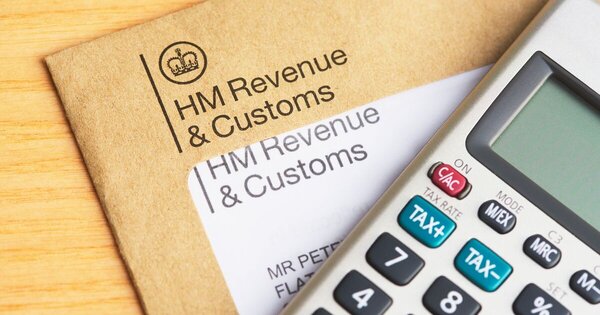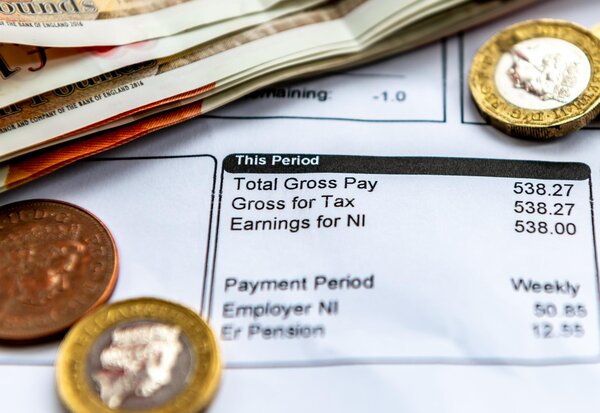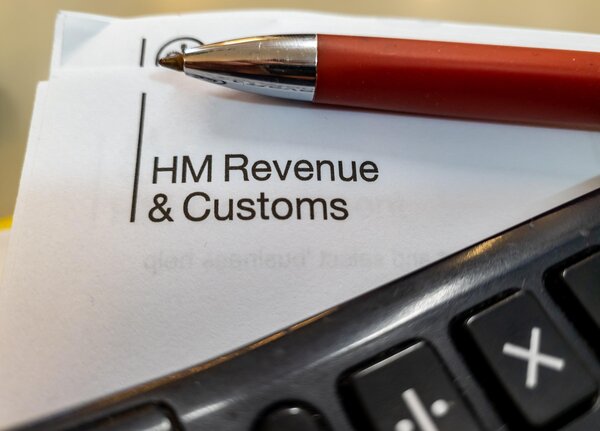Breaking It Down for You
Inheritance tax can feel like a bit of a mystery. It’s a tax that comes along during an already difficult time when you’ve lost someone close to you. Nobody likes thinking about it, but knowing where you stand can save your loved ones thousands of pounds.
Certain financial assets and gifts are treated differently for inheritance tax purposes, which can affect the overall tax liability on an estate.
The good news? You might not need to pay any tax at all on your inheritance.
It all depends on how much you receive and your relationship to the person who’s passed away. Let’s break it down in simple terms so you know exactly what to expect.
How much money can you inherit tax-free in the UK?
The basic inheritance tax threshold (also called the nil-rate band) is £325,000 per person. This means if the estate you’re inheriting is worth less than this amount, there’s no inheritance tax to pay.
Understanding tax free thresholds is crucial for effective inheritance tax planning, as they can significantly reduce the amount owed. If the estate is worth more, inheritance tax is usually charged at 40% on anything above this threshold.
For example, if you inherit an estate worth £400,000, you’d pay no tax on the first £325,000, but you’d pay 40% tax on the remaining £75,000 that’s £30,000 in tax. However, this threshold can be higher in many cases, as explained below.
Calculating Inheritance Tax
Calculating inheritance tax can seem daunting, but understanding the basics can help you minimize the tax bill. Start by determining the total value of the estate, which includes all assets such as property, investments, and personal possessions.
The tax-free threshold, known as the nil-rate band, is £325,000. Any amount above this threshold is subject to inheritance tax at a rate of 40%.
For instance, if the estate is worth £425,000, you would subtract the £325,000 tax-free threshold, leaving £100,000 subject to tax. At 40%, the inheritance tax bill would be £40,000.
Additionally, the residence nil-rate band provides an extra £175,000 tax-free allowance when a home is left to direct descendants, like children or grandchildren. This can increase the total tax-free threshold to £500,000, significantly reducing the inheritance tax to pay.

What about inheriting a home? The residence nil-rate band explained
Since 2017, there’s been an extra allowance when a home is involved. It’s called the residence nil-rate band, which gives you an additional £175,000 tax-free when you inherit the main home of the person who died, but only if it’s left to direct descendants.
This means one person can potentially pass on £500,000 tax-free (£325,000 basic allowance + £175,000 home allowance). For married couples and civil partners, it gets even better, as any unused allowance can be transferred to the surviving partner.
Together, this means a couple could potentially pass on up to £1 million without their beneficiaries paying any inheritance tax. This can make a significant difference, especially where the family home forms a large part of the estate.
Large Estates and Inheritance Tax
Large estates often face a hefty inheritance tax bill, but there are ways to reduce it. Inheritance tax is charged at 40% on the amount above the tax-free threshold. However, certain exemptions and reliefs can help lower this bill.
Business property relief, for example, can reduce the inheritance tax bill by 50% or even 100% on qualifying business assets, such as shares in unquoted trading companies. Similarly, agricultural property relief can offer a 50% or 100% reduction on farmland used for agricultural purposes.
Don’t forget the annual exemption, which allows you to give away up to £3,000 each year tax-free. Married couples and civil partners can combine their allowances, potentially passing on up to £1 million tax-free, making a significant difference in the inheritance tax bill.
Who doesn’t have to pay inheritance tax?
Some people don’t have to worry about inheritance tax at all. Spouses and civil partners can inherit everything from each other completely tax-free, with no limits. Charities also don’t pay inheritance tax.
To avoid inheritance tax, consider strategies such as using trusts and specific exemptions.
In fact, if you leave at least 10% of your estate to charity, the tax rate on the remainder of your estate may drop from 40% to 36%, a meaningful way to support causes you care about while also reducing the tax bill for your other beneficiaries.

Married Couples and Inheritance Tax
Married couples and civil partners enjoy several advantages when it comes to inheritance tax. One of the most significant benefits is the spousal exemption, which allows them to transfer assets to each other without paying inheritance tax. This means the surviving spouse or civil partner can inherit the entire estate tax-free.
Moreover, they can pool their tax-free allowances, enabling them to pass on up to £1 million tax-free to their beneficiaries. This includes the combined nil-rate band and residence nil-rate band.
However, it’s important to note that the spousal exemption applies only to married couples and civil partners who are either UK domiciled or non-UK domiciled. If one partner is non-UK domiciled, different rules may apply, so it’s wise to seek professional advice.
What about gifts made before death?
Gifts made during your lifetime can help reduce inheritance tax. You can give away up to £3,000 each tax year without it counting towards inheritance tax, this is called your annual exemption.
You can also make small gifts of up to £250 per person (to as many people as you like) tax-free. Special allowances apply to wedding gifts too: parents can give up to £5,000, grandparents £2,500, and anyone else £1,000 all inheritance tax-free.
The seven-year rule is also important.
If you give away larger sums and live for at least seven more years, those gifts become completely tax-free. If you die within seven years, the gifts may still be taxed but the rate reduces the longer you live after making the gift.
How can you reduce your inheritance tax bill?
Planning ahead can make a big difference to how much tax your loved ones might have to pay. Making a will is the first step without one, your estate might not be passed on in the most tax-efficient way.
Setting up a trust can sometimes help reduce inheritance tax, though the rules can be complex. A life insurance policy can also help minimize inheritance tax liabilities if written “in trust”, it pays out separately from your estate and can be used to cover the inheritance tax bill.
Giving regularly throughout your lifetime can gradually reduce the size of your estate, and some pensions can be passed on free from inheritance tax. These strategies require careful planning but can save families thousands in the long run.

Writing a Will and Estate Planning
Writing a will and engaging in estate planning are crucial steps in minimizing your inheritance tax bill. A well-crafted will allows you to specify how your assets should be distributed and can help reduce the tax burden on your beneficiaries.
For example, leaving 10% or more of your net estate to charity can reduce the inheritance tax rate from 40% to 36%. Additionally, setting up a trust through your will can provide tax benefits and protect your assets.
Estate planning also involves making strategic decisions about your assets, such as making gifts to family and friends and utilizing the annual exemption. By planning ahead, you can ensure your estate is distributed according to your wishes while minimizing the inheritance tax bill.
Business Property Relief
Business property relief is a valuable tool for reducing the inheritance tax bill on certain business assets. This relief can reduce the tax bill by 50% or even 100% on qualifying assets, such as shares in unquoted trading companies and certain business properties.
To qualify for business property relief, the business must be a trading company, and the shares must be unquoted. The relief can also apply to business properties like farms and commercial properties.
Given the complexity of business property relief, it’s advisable to seek professional advice to ensure eligibility and maximize the benefits. Proper planning can significantly reduce the inheritance tax bill, preserving more of your estate for your beneficiaries.
When and how is inheritance tax paid?
Inheritance tax is usually due within six months of the person’s death. The executor of the will is responsible for working out how much is owed and paying it to HMRC. In most cases, the tax must be paid before any assets can be distributed to beneficiaries.
If the estate includes property or other high-value assets, it may be possible to pay the tax in instalments over ten years, though HMRC will charge interest. This option can help when the estate is tied up in assets rather than cash.

Is inheritance tax likely to change in future?
Inheritance tax rules can change, so it’s worth keeping an eye on announcements, especially around Budget time. The main threshold of £325,000 has stayed the same since 2009, despite rising property prices and inflation.
While there are no confirmed changes for 2024–2025, some experts believe reforms are likely in the future. It’s wise to build flexibility into your estate planning and to check the latest guidance or speak with a tax adviser.
Should you get professional advice?
If you’re dealing with a larger estate or more complex circumstances, getting advice from a tax professional can be well worth it. They’ll help you take advantage of all the available exemptions and reliefs to protect your estate.
Pie is the UK’s first personal tax app, built to help working individuals overcome their tax burdens. It’s the only self assessment solution offering integrated bookkeeping, real-time tax figures, simplified tax returns, and timely expert advice.
Final thoughts on inheritance tax
Inheritance tax doesn’t have to be confusing. The basics are simple: most people can pass on at least £325,000 tax-free, and up to £500,000 if a home is involved. For couples, those amounts can double to £1 million.
With some careful planning, you can reduce or even eliminate the inheritance tax your loved ones may face. And since tax rules can change, it’s always worth checking the latest information or seeking professional guidance.
Need help managing your tax affairs? The Pie Tax App makes handling tax simple and stress-free, giving you more time to focus on what really matters.











